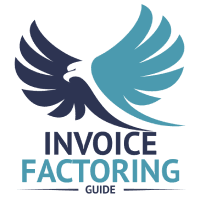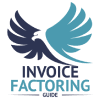Invoice Factoring for Import-Export Companies
As an international or cross-border trader, you know that cash flow is crucial to your business’s success. Unfortunately, this industry presents a unique set of challenges when it comes to accessing working capital due to the lengthy export process, compliance requirements, and international tariffs that make payment wait times longer.
Waiting for customer payments to come through can be frustrating especially when traditional lenders limit the levels of import and export financing they are willing to approve because they view it as too risky.
Export invoice factoring—also known as international factoring, foreign accounts factoring, or import-export factoring—can help address the industry’s inherent cash flow bottlenecks by providing quick and flexible access to working capital.
Import-Export Factoring vs. Bank Loans
Both bank loans and import-export factoring have advantages and disadvantages, so it’s important to consider each one carefully to determine the best fit for your business needs.
Bank loans are a traditional form of financing that provides a lump sum of cash that is repaid with interest over time. Bank loans may require collateral and have strict eligibility requirements that may be difficult to meet for new or small businesses. The application process can also be time-consuming, and approval is not guaranteed. Additionally, banks may limit the amount of funding they provide for import-export businesses, which can limit your ability to grow your business.
Factoring, on the other hand, can offer a number of advantages for import-export companies. For example, factoring provides quick access to cash without the lengthy approval process required for a bank loan. Factoring also does not require collateral, making it easier for smaller or newer businesses to obtain financing. Additionally, factoring can help mitigate the risk of customers’ non-payment, which can be a significant concern for businesses in the import-export industry.

Top Financial Challenges in the Import-Export Industry
The import-export industry faces unique financial challenges due to the nature of the business, which involves trading goods across borders. Here are some of the most prevalent:
By providing immediate cash for outstanding invoices, invoice factoring can help businesses overcome the challenges of long payment terms and currency fluctuations, allowing them to better manage their cash flow and take advantage of new business opportunities. Plus, factoring companies can provide valuable risk management services, such as credit analysis and collections support, to help import-export businesses manage the risks associated with international trade.
Overall, invoice factoring can be an effective tool for helping import-export businesses overcome the unique financial challenges they face and achieve long-term financial stability.
How to Run a Successful Import-Export Company
To run a successful import-export company, consider the following:
Financing Options for Import-Export Companies
If you’re running an import-export company, you may face challenges when it comes to obtaining financing your business. Luckily, there are several options available to help you get the funding you need (other than bank loans).
Improving Global Trade Efficiency Through Export Factoring
In today’s global market, export factoring stands as a solution for import-export businesses, improving the financial complexities of international trade. By embracing export factor and import factor services, companies can convert their invoices quickly into immediate cash, fueling business growth without the wait. This financial strategy, known as international factoring, allows businesses to manage their receivables more efficiently and navigate the complex web of international trade and commerce with greater agility. Factoring companies specialize in providing these essential factoring services, offering a lifeline to exporters and importers alike who seek to maximize their operational flow and seize new opportunities. With international invoice factoring, businesses gain access to a financing solution that bridges the gap between invoice issuance and payment receipt, ensuring that cash flow gaps are minimized and that the company is in good financial health. This innovative approach not only improves the import and export business model but also propels international business entities towards sustainable growth and success in the international marketplace.
Your industry has its unique cash flow challenges, and you want to partner with someone who understands your financial needs and business model. If you’re in the import or export business and want to boost your cash flow, speak to an industry-specific factoring company about your financing options.
Don’t know where to start? Get in touch with Invoice Factoring Guide (IFG), and we will help you find the perfect import-export factoring company for your unique needs. Request a complimentary rate quote today!
Why Healthcare Companies Choose Invoice Factoring
“Awesomeness personified. This company saved our business. Instead of having to wait around 2 months for our payments we get them within days.”
“They give me the fast cash I need and the team there is great. My rep always takes the time to help me out.”
“The people there really care about you and I’m very happy with the service I’ve gotten.”
“I was completely impressed with their professionalism and customer service.”
“Our transition has been very smooth and easy.”
“I had a great experience from the onboarding to the factoring.”
Get an instant funding estimate
Results are estimates based on the calculated rate and the total invoice amount provided.
Actual rates may vary.
Request a Factoring Rate Quote
PREFER TO TALK? Call us at 1-844-887-0300
A Network Featured by the Media






Partners Affiliated with Industry Leaders





